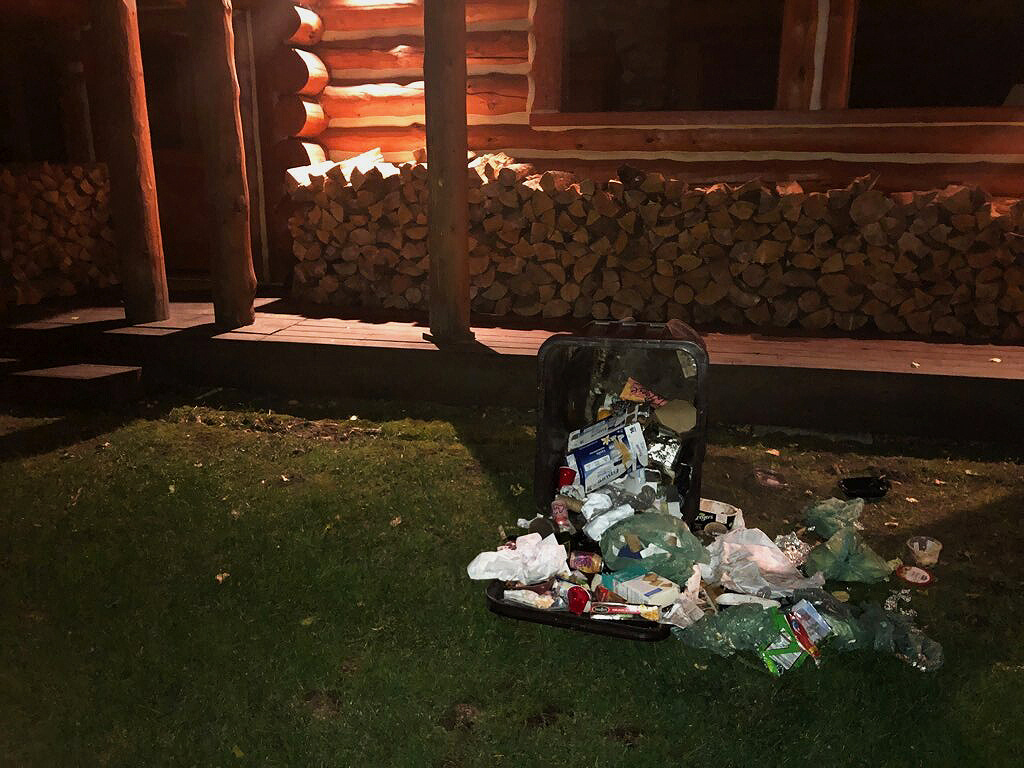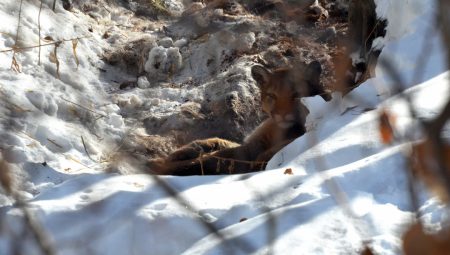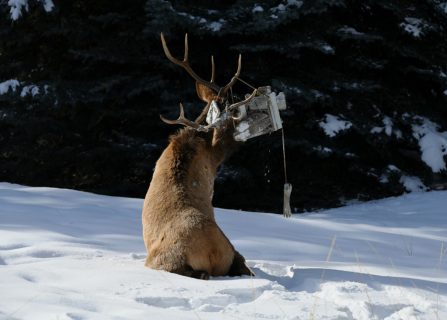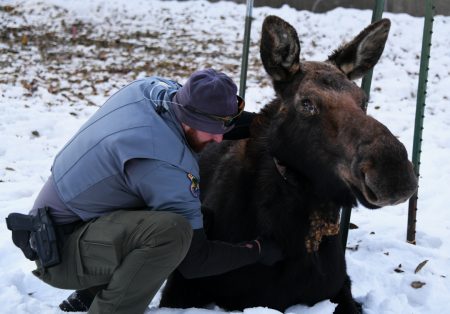Wood River Valley black bears continue to get food rewards from residential garbage
By Terry Thompson, Regional Communications Manager
Tuesday, August 18, 2020 – 1:54 PM MDT
Black bears in the Wood River Valley are getting food rewards from residential garbage containers, presenting a public safety risk when bears become food-conditioned.
Black bears, some with cubs, continue to find unsecured residential garbage throughout the Wood River Valley leading to food-conditioned bears. During the early morning hours of August 17, a large sow and cub were found in the Warm Springs area, with the sow gaining access to at least four unsecured garbage cans. Blaine County Sheriff’s Office deputies and a Fish and Game officer monitored the sow and cub throughout the early morning hours to encourage them to leave the neighborhood. Near daybreak, both bears wandered into the surrounding timber.

A residential garbage container became a source of food for a food-conditioned black bear in Ketchum
To help prevent black bears from becoming food-conditioned, it is the responsibility of every resident to secure their garbage in a garage or locked shed. Ketchum Mayor Neil Bradshaw offered this advice to Ketchum residents, “These bears necessitate a change in our behavior. We urge all Ketchum residents, especially those in the Warm Springs neighborhood, to do their part by securing garbage overnight. It is our priority to keep our residents and visitors safe and our wildlife wild.”
While a bear learns quickly to associate a food-reward with a residential garbage can, it is extremely difficult to change that learned behavior. The solution is to never let a black bear learn that a garbage can is a place to find food. In the case of the Warm Springs bears, the cub is now learning the negative behavior of a food-conditioned bear. If garbage continues to be left out, and these bears are repeatedly rewarded with human-provided food, the Department may find it necessary to euthanize both bears if they become a threat to public safety. Relocation has been unsuccessful in most scenarios, and the cub is currently too young to survive without the sow.
“It’s pretty straight-forward” according to conservation officer Brandyn Hurd, “keeping residential garbage out of reach of a bear can significantly reduce the chances of a bear becoming food-conditioned. We all know the saying, a fed bear is a dead bear. Our goal continues to be keeping our bears wild by not allowing them to get a food reward from people.”
To keep Wood River Valley bears wild, remember these important steps:
- Keep all household garbage secured in a garage or other enclosed area.
- Put your garbage container curbside on the morning of pickup, NOT the night before.
- Leftovers or discarded fish or meat bones give off a strong odor and should be stored in your freezer until the day of garbage pickup.
- Keep attractants like B-B-Q grills, bird seed or pet food stored where bears cannot find them.
- Bird feeders should be taken down May through October or placed well out of reach of bears.
Your actions to keep food away from bears will keep you, your neighbors and your pets safe by not creating a food-conditioned bear. Furthermore, it could help save the life of the bear. Additional resources on how to eliminate attractants and keep bears wild can be found at: https://bearwise.org/bear-safety-tips/keep-bears-out/
For more information about how to live safely in bear country, contact your local Fish and Game office.




